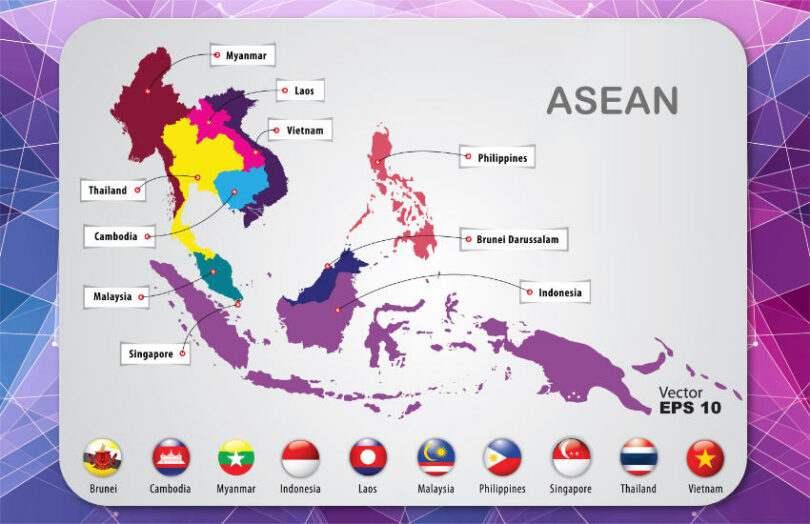A new report from the Organisation for Economic Cooperation and Development (OECD) explores the impact of decentralized finance (DeFi) in the ASEAN region. On the one hand, there is little current evidence of a DeFi financial inclusion impact. That’s because DeFi is dominated by professional and institutional investors. It also found that retail investors bore the brunt of the crypto fallout. However, despite its concerns over the current unregulated nature of activities, it sees potential if regulated institutions adopt tokenization, DLT and other DeFi features.
Professionals dominate DeFi
A major takeaway from the report was the analysis of the types of active investors in the decentralized finance markets. It categorized activity based on trade size, with retail transactions counting as anything below $10,000. In terms of dollar volumes (rather than transaction numbers) institutional (transactions > $1 million) and professional investors ($10k-$1m) dominate across the globe.
This was reinforced by data on trade sizes split into centralized(CEX) versus decentralized exchanges (DEX). Centralized exchanges predominantly serve retail users and have significantly smaller transaction sizes, typically less than $1,000 but averaging $1,000 – $4,000. In contrast, the Curve DEX had average transactions of around $200,000 for an extended period in 2023, with Uniswap V3 averaging around $95,000.
“Using transaction sizes as a proxy, it can be inferred that more than 2/3 of global crypto-asset activity is performed by professional and/or institutional investors in every region analysed, and the share of professional activity as a part of total crypto-asset volume is the highest in East Asia,” the report finds.
Hence, the OECD is making the point that retail makes up a relatively small proportion of the total dollar trades. However, in an unregulated environment, following the collapse of centralized exchanges and lenders, consumers were the ones to lose the most. Plus, if a user wants to host their own coins and participate in DeFi, the current usability of DeFi is below par. It ponders whether self custody rules out DeFi for retail users, particularly the underbanked.
ASEAN crypto adoption
Part of the report explores the takeup of crypto in specific countries. Between 2020 and 2022, Thailand experienced the largest flows per capita, followed by Malaysia and Vietnam. In absolute terms, Vietnam had the most significant flows, with Thailand and Singapore next.
The OECD warns that unregulated crypto activity not only exposes consumers to losses but also presents financial stability risks for some economies.
At the same time, it points to the potential for tokenization to bring efficiency and productivity gains to capital markets. It highlighted two initiatives in the region where DeFi has been explored, including Project Mariana and Project Guardian.
The Monetary Authority of Singapore started Project Guardian in 2022 in collaboration with JP Morgan Onyx, DBS and SBI Digital Asset Holdings, which are trialing DeFi on public blockchain. It subsequently significantly expanded the initiative last year. In addition to numerous new use cases, regulators from England, Switzerland, and Japan have also joined.






